There are more than a thousand species of sheep. We can distinguish unique features such as coat, facial coloring, or physical characteristics. Also, varieties are not on record due to being bred in countries without official sheep breed registries.
The Dorper is a popular species of sheep. Bred in the 1930s in South Africa, it was designed to thrive in challenging climates. The primary purpose of this species was for meat. The Dorper sheep are easy to recognize due to their black heads.
If you’re considering raising Dorper sheep or already have a flock, read on for our complete beginner’s guide on this hardy sheep species.
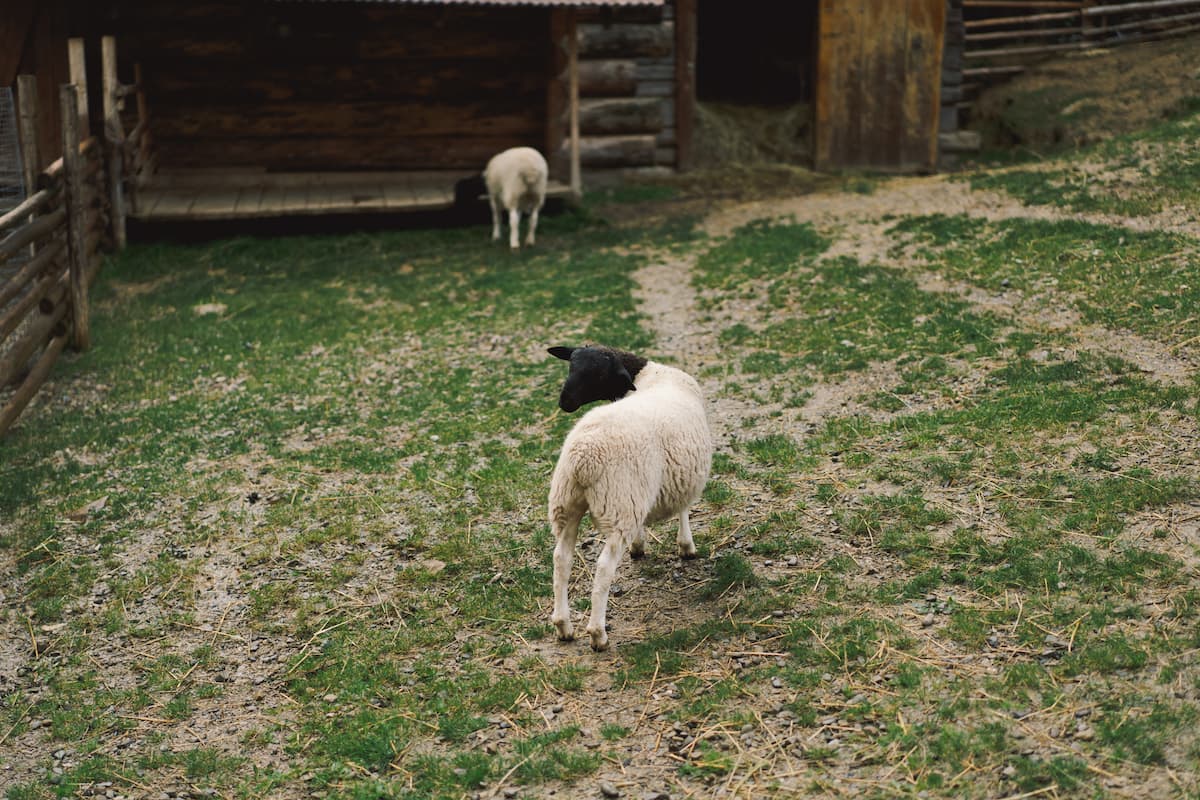
How to Care For Dorper Sheep
To care for Dorper sheep, we must ensure they have suitable grazing space and food. It is important to have a secure area with enough room for the animals to roam. One benefit of Dorper sheep is that they require minimal support to thrive.
Taking good care of livestock should be the highest priority. Dorper sheep are easy to care for, leading to their continuous popularity. They require minimum care beyond a good grazing space.
While this breed can be sheared, they naturally shed their coat. The Dorper sheep is an ideal beginner breed.
Pros and cons of Dorper sheep to other breeds
Before purchasing Dorper sheep, we may wonder if they are a suitable species for us. Since all sheep breeds have perks and downfalls, it’s important to consider them before committing.
Below, we’ve outlined some of the features that are pros, and cons of the Dorper species.
Pros
- Suitable for meat – This breed’s original and primary purpose is meat production. We can use Dorper sheep for lamb and mutton. They also gain weight quickly.
- Year-round breeding – Dorper sheep can breed anytime during the year. Dorper ewes are attentive mothers and self-sufficient in birthing and caring for their lambs.
- Low maintenance and adaptability – By design, Dorper sheep can survive in various terrains and climates. They are unaffected by heat and have a thick coat for colder seasons. While pastures are ideal, Dorper sheep will happily graze on dry land with roughage.
- Self-Shedding – Dorper sheep have a coat that combines wool and hair. This means it will shed by itself, and we don’t need to shear them.
Cons
- Not suitable for wool – Dorper sheep are not bred for their coat. It is a mix of hair and wool, so we cannot spin this into yarn. Their coat makes good bedding for other animals but doesn’t serve a broader purpose.
- Not suitable for milk – Dorper sheep are not bred for dairy products, so if this is a feature you are looking for, this might not be the right breed.
- They are loud – While anyone who has worked with livestock knows no animal is quiet, Dorper sheep have a reputation for reaching high volumes. This might not be an issue if you live remotely, but it’s worth being aware of the neighbors.
For more information on the pros and cons of sheep as pets, click here to read our article on keeping sheep as pets.
What kind of shelter do Dorper sheep need?
Dorper sheep are very happy to live their life in the pasture. It is always good to have some form of shelter, especially in times of adverse weather. Depending on the conditions in the area, trees may provide suitable shade and cover from sunshine or rain.
In colder climates with high winds or heavy rains, consider a man-made structure such as a run-in shed. This will provide shelter so the sheep can find protection from extreme temperatures or storms.
Sheep need shelter after shearing their wool. Read this article to learn more: Do Sheep Get Cold After Shearing?
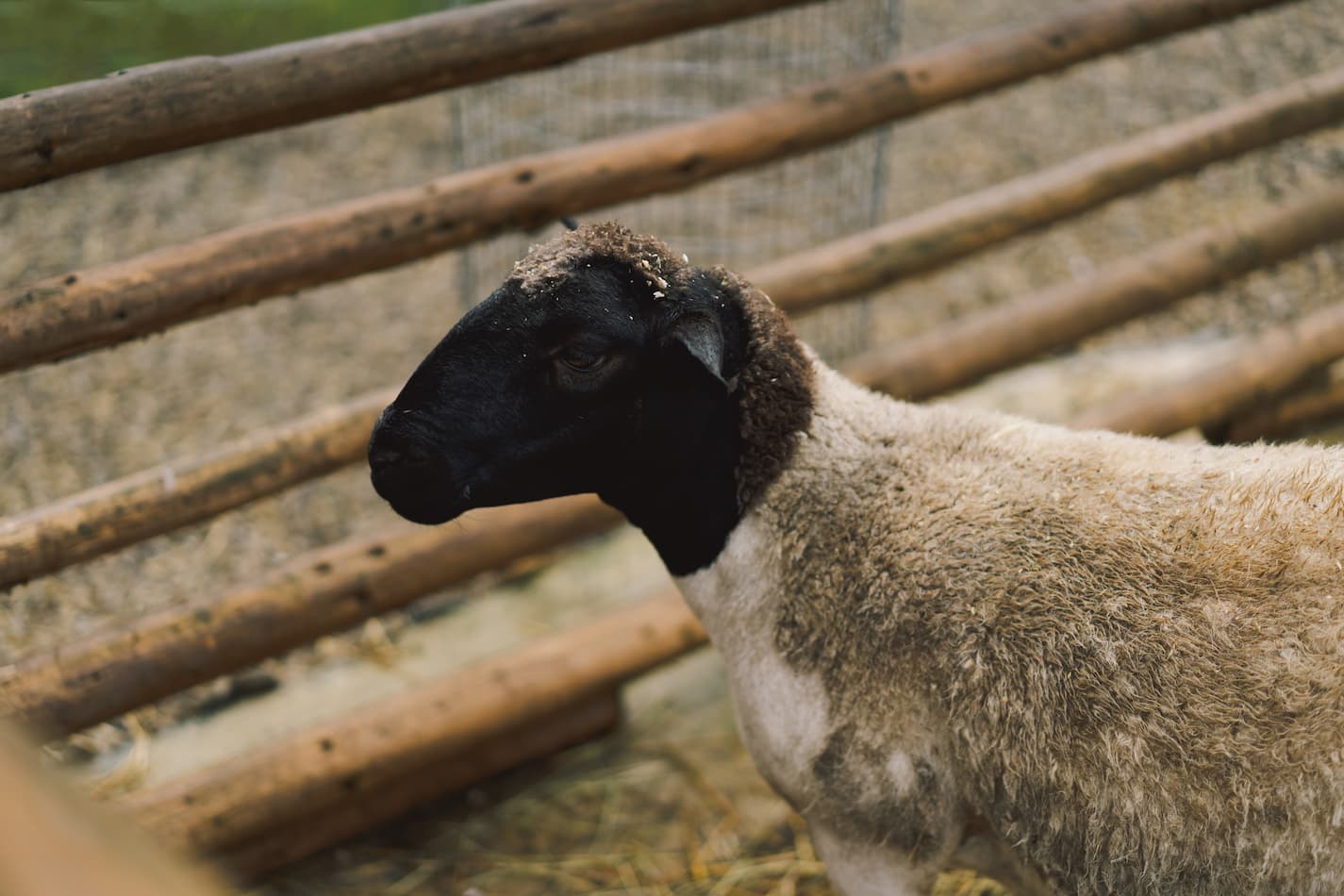
What kind of fencing does a Dorper need?
The fence needed depends on the risk of predators we expect. If the risk is low, then a wire fence that is high enough to keep the sheep in will suffice. If we are concerned about predators, consider woven wire or electrical fences as a deterrent.
Fencing is required to protect Dorper sheep from predators and keep them from wandering off. They will be happy in the pasture if they have enough room and food. They are not known as escape artists.
Do Dorpers need a guard dog or guard livestock?
The need for a guard dog or livestock, such as llamas or donkeys, depends on the risk of predators. Dorpers cannot fend for themselves against predators, but if there are none in the area, protection may not be required.
If we’re unsure of the risk level in the area, speak with a local farmer, other animal owners, or local authorities about reported incidents.
Want to know if a camelid could guard your flock? Here’s How Alpacas Guard Sheep and Lambs.
What’s the lifespan of a Dorper sheep?
Dorper sheep have a life span of around seven years. As this animal is raised mainly for meat, it is unlikely to have one animal for this length of time. If the intention is to raise Dorper sheep for meat, they will be sent to slaughter between six months to two years old.
Ewes can produce lambs for many years, and rams will reach their breeding peak around three to four years old. In this circumstance, a Dorper sheep may be kept up to old age for breeding purposes.
Do Dorper sheep have wool?
Dorper sheep have a coat that is a mix of hair and wool. We cannot spin the wool from their skin. Hair sheep aren’t as affected by heat; they will shed if too warm. Wool can also impact the flavor of the meat, creating a strong taste in mutton.
What do Dorper sheep eat?
Dorper sheep are happy to eat grass and shrubs. They will be able to find food on most terrain and, much like goats, aren’t fussy. Provide Dorper sheep with hay to eat for extra nutrients. If choosing to feed them grains, do this sparingly as they are quick to gain weight.
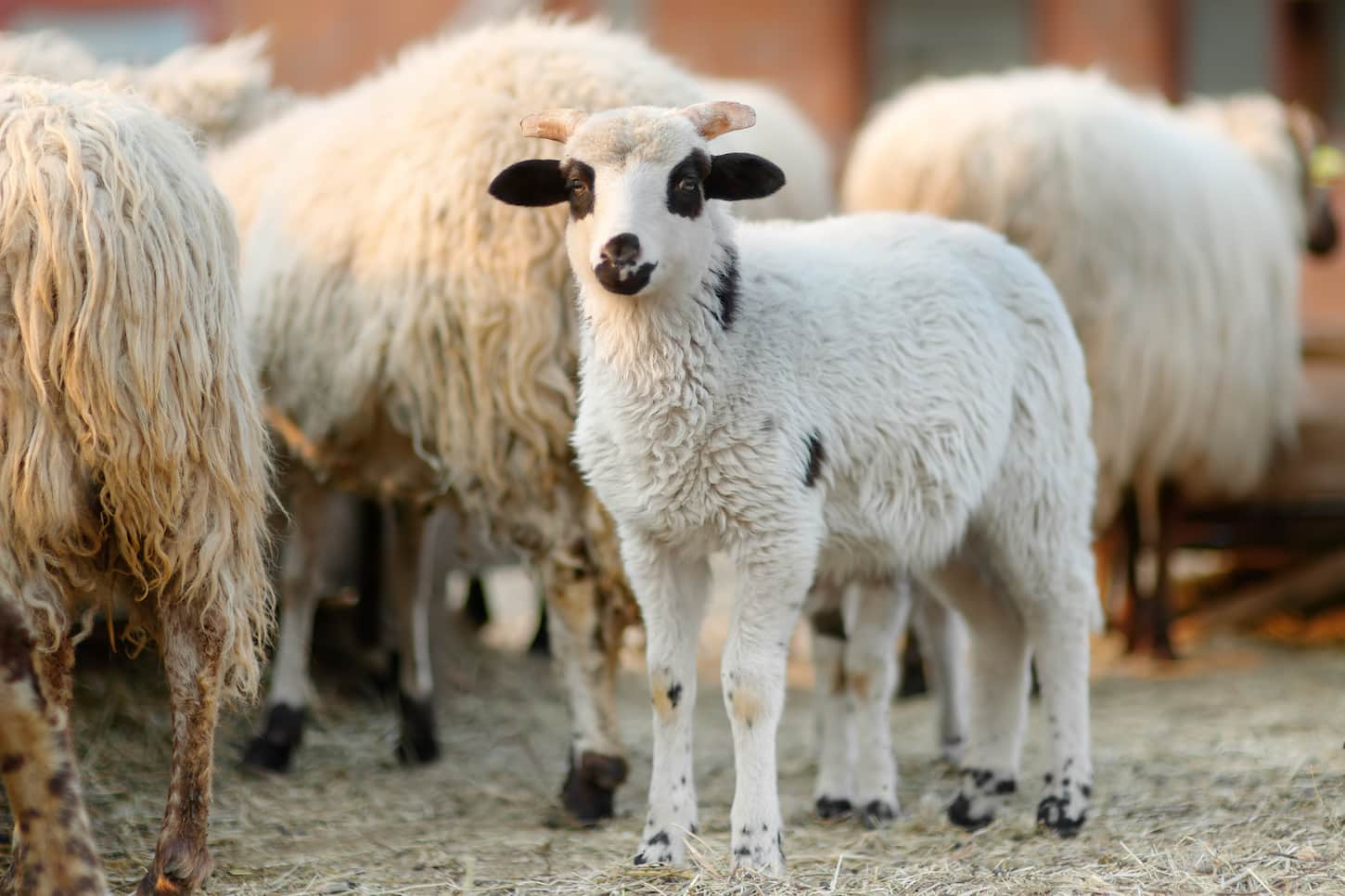
How to Raise and Care for Dorper Lambs and Ewes
Raising and caring for Dorper lambs and ewes is relatively easy, though it does require research and experience. Dorpers don’t have the highest lambing percentage, but they can breed throughout the year.
An owner’s primary responsibility when caring for ewes and lambs is regularly checking them in case of complications.
Dorper sheep are known for their motherly instincts. This means we can have confidence in our sheep’s ability to give birth and care for their lambs.
When considering Dorper sheep for breeding, think about the lambing rates, length of pregnancy, and the time scale for lambs to reach maturity.
How many lambs do Dorpers have?
It is most common for Dorper ewes to have one lamb per pregnancy. They can have twins, and the lambing percentage increases when breeding once a year under good conditions. When breeding multiple times a year, it’s more like the ewe will produce a single lamb per pregnancy.
How long are Dorper sheep pregnant?
Dorper sheep are usually pregnant for just under five months. This is an average cycle for sheep. As they are near the end of their pregnancy, it’s good to check on them regularly.
Dorper sheep are very independent when caring for their babies, but there is always a risk of complications that might need assistance.
How often do Dorpers have babies?
Dorpers have lambing intervals of eight months, so when cared for properly, they can produce lambs three times within two years. One of the advantages of this breed is its ability to lamb throughout the year resulting in a steady production of meat.
How long does it take until a Dorper lamb is fully grown?
Lambs are considered fully grown at six months. However, a Dorper lamb gains weight quickly, meaning by three to four months old, the lamb should have gained enough weight for the market.
As Dorper sheep are primarily bred for meat, their fast weight gain is an economic advantage if we are hoping to make a profit from the flock.
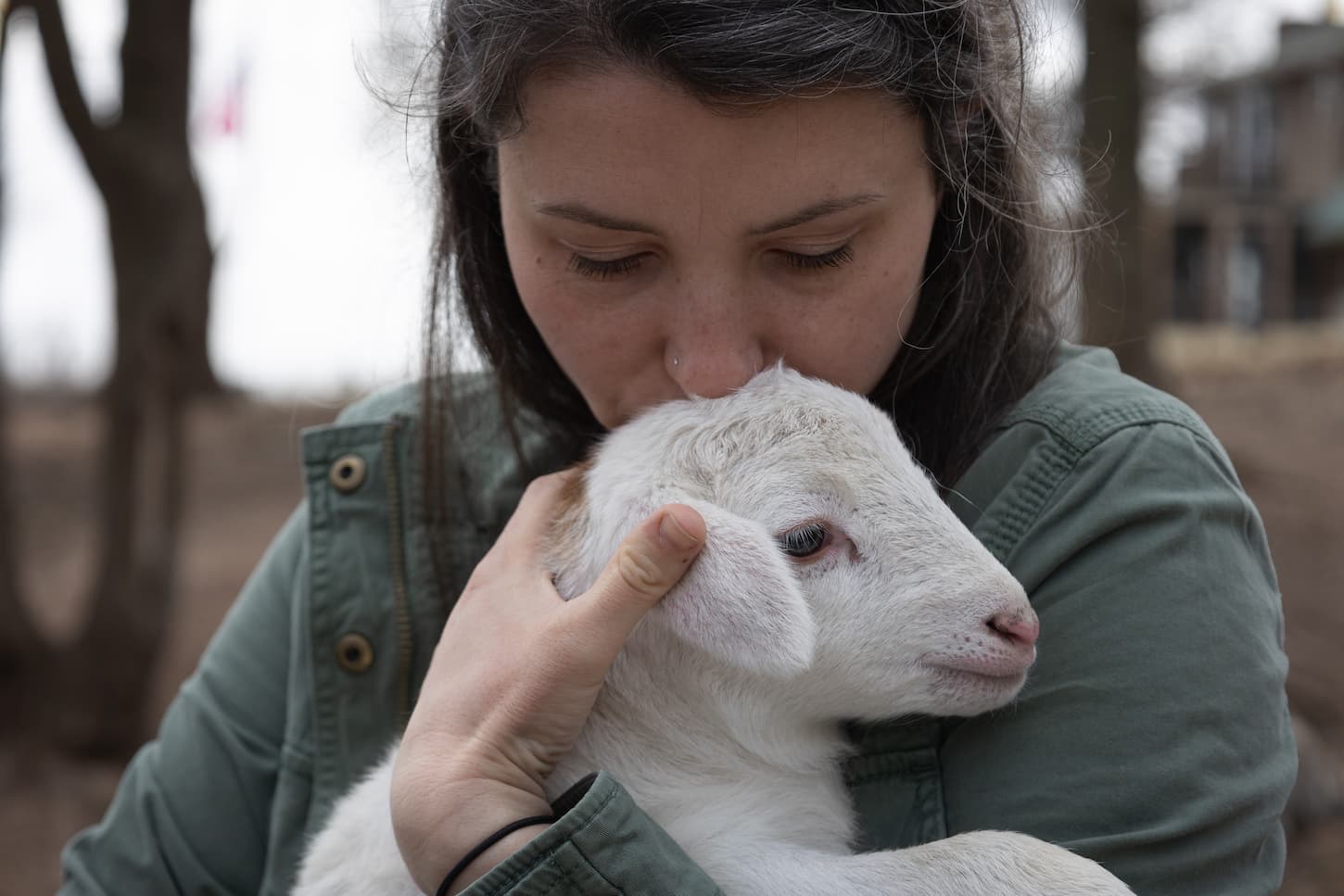
Caring For Sick or Ill Dorper Sheep
As with any animal, Dorper sheep need our support and attention to help prevent them from getting sick. The Dorper breed is known for its hardiness, but the illness can still occur. In these circumstances, be prepared to focus a lot on caring for the sick flock.
Climate change can lead to sickness within a flock, and pure breeding will not necessarily protect the sheep.
Are Dorper sheep aggressive?
Dorper sheep are known to be a friendly breed, but as with any animal, we cannot always predict their behavior. Dorper sheep can be energetic, and when dealing with a large flock not used to human interaction, it’s not uncommon to see aggressive behavior.
The above-mentioned is more a reflection of the nervousness in the sheep rather than their nature.
The Dorper sheep are a crossbreed, which can impact their aggressiveness. It’s also not uncommon to find rams more aggressive. Ewes who have lambs may also display this, as they will feel the need to protect their young. Lambs who are unsure of humans can also show aggression.
Aggression is not a common feature of the Dorper breed, but as with all animals, we must respect their space and be cautious when interacting with the flock. The more time spent around a flock, the more used to our presence they will be.
Do Dorper sheep get lice?
Dorper sheep can get lice. Due to their shedding, people usually think of them as resistant to lice, but they can carry a low number. This means that while the lice might not actively impact sheep, they can spread to other breeds.
If we’re concerned that our sheep are carrying lice, we can seek advice from a veterinarian.
Do Dorpers get lots of parasites?
Experts consider Dorper sheep to be parasite resistant. As a breed, they are hardy, including a reduced risk of parasites. But, they are not entirely immune.
Dorper sheep were bred for an arid environment; parasites are uncommon in hot and dry conditions. They can thrive in many environments, but wet or humid conditions increase the likelihood of parasites. To avoid issues, drench the flock to reduce the risk of parasite infestation.
What illnesses do Dorpers usually get?
Generally, there are no illnesses that are specific to Dorper sheep. Like many other sheep breeds, they can suffer from parasites and lice, as outlined above.
The exception to the above can be White Dorper sheep. This breed can have fragile skin like lambs, which can lead to dermatosparaxis, a fatal skin disease. We can test our sheep for this disease as it’s passed down genetically.
Speaking with a livestock veterinarian about the risk before purchasing sheep is wise.
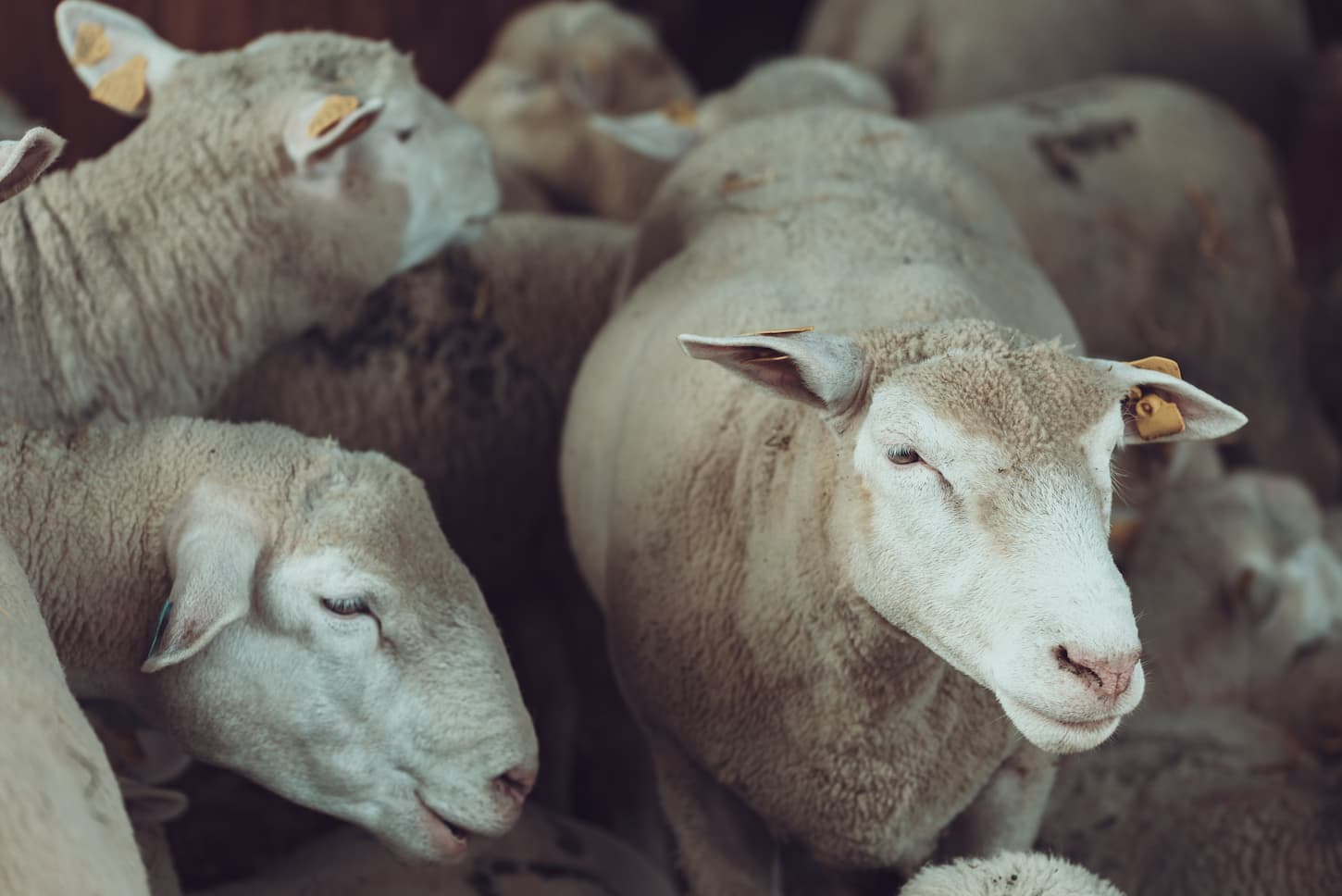
Keeping Dorpers on a Homestead
Since Dorpers are an easy breed of sheep to raise and a good choice for beginners, they are popular for a homestead. They are primarily raised for meat, so they can provide food for the family and be sold at the market.
Dorpers don’t require much land and are very self-sufficient. They are a hardy breed that can suit almost any homestead terrain. It’s important to assess our land before purchasing Dorpers to have the appropriate space for the sheep.
How many Dorpers can live on an acre of land?
Homesteaders can keep 3 to 6 Dorper sheep on one acre of land. When deciding how many sheep to purchase, it’s a good idea to consider how many sheep are required rather than how many can fit on the land.
While people can max out their space with six Dorpers, beginners can start with three and increase the flock as they become more comfortable with the breed.
It’s worth considering the quality of the land. Dorper sheep are suitable for many terrains. If the land doesn’t have enough roughage for the sheep to graze, then the owners may need to provide some food, such as dry hay.
Again, starting with a smaller flock and increasing the number is a great way to test if the land will work if you haven’t raised sheep before.
How much land does one Dorper sheep need?
Dorper sheep need about 1/4 acre per animal. Dorpers do not need a lot of land, but they do need a flock. As sheep are social animals, keeping them in a flock is best. They can get lonely and bored when kept alone, leading to them becoming destructive of their pasture.
When starting, we can begin with two or three sheep on an acre of land. So, in theory, one Dorper sheep needs around one-quarter of an acre, but with extra space, they can roam.
How long does a Dorper lamb take until it’s ready for slaughter?
A Dorper lamb will be ready for slaughter between six to eight months old. The animal will need under twelve months to be classified as lamb meat.
How well do Dorpers do in arid or drought-prone areas?
Dorpers do well in arid and drought-prone areas. Dorpers were initially bred for the conditions of South Africa. This means that even in hot and dry climates, they are happy to graze on whatever greenery and shrubs they can find.
This is one of the features which makes them such a popular breed of sheep, as they can thrive under challenging conditions.
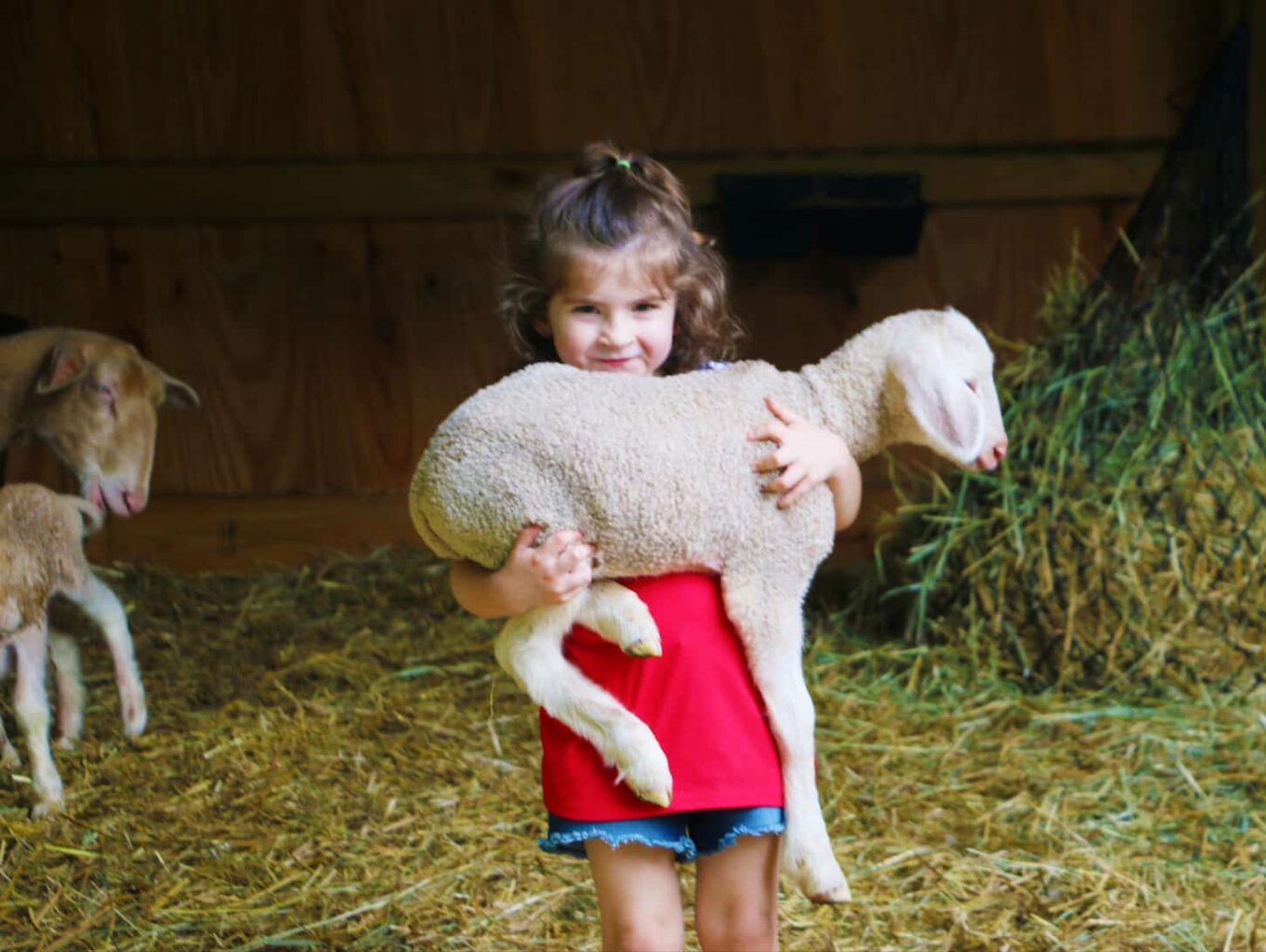
Answers to Dorper FAQs
Below we cover some common FAQs that might not have been addressed in the above sections. It may be here if we haven’t covered your question specifically yet. And if it’s not? Contact us and let us know your question. That way, we can get you an answer and add it to this article.
Are Dorper sheep good pets?
Dorper sheep can make good pets. Since they are hair sheep who don’t require shearing, they can be easy to take care of. They are suitable in many conditions and don’t often suffer from illness, so they are suitable for beginners.
Dorpers are an intelligent breed and can listen when being called, but as with any pet, they require dedication and patience while we learn the characteristics of these animals.
Do Dorpers need drenching?
Dorpers don’t need drenching as they can be resistant to parasites. We will unlikely need to drench our flock in dry, hot climates. If raising sheep in a wet and humid climate, consider drenching as the likelihood of parasites increases.
What are the easiest sheep to keep? Is it a Dorper?
Dorper is one of the easiest sheep to keep. Katahdin sheep are also easy to keep and are docile, so they are suitable for families with children. Barbados Blackbelly Sheep is another hair sheep that have a high lambing rate.
In addition, Polypay sheep are an easy-to-keep wool breed if interested in utilizing the sheep’s coat.
No one breed of sheep is easiest to keep, as it depends on what is needed from the flock. Some low-maintenance and beginner-friendly breeds are Dorper, Katahdin, Barbados Blackbelly, and Polypay sheep.
Three main considerations make a particular breed easy to keep.
- Nature – Is the breed friendly and easy to trust?
- Coat – Hair sheep are best for beginners as they will shed, meaning we won’t need to shear them.
- Mothering – If hoping to breed the sheep, we want those who are attentive to their young so we can be hands-off in the raising process.
How much do Dorpers cost?
The cost of Dorper sheep can vary based on the breeding and quality of the animal. The record sale of a ram is $15,500. Dorpers are sold (on average) at $1,500 per head in a county show.
There are different varieties of Dorpers, mainly purebred and full-blood. A full-blood Dorper can have its heritage traced back to South Africa directly. Purebloods have above 90% genetics of a Dorper but may be crossed with an American breed.
A full-blood is the more expensive variety. We can purchase a Dorper from $200 to 500 dollars if we don’t need a purebred, show-quality sheep.
When purchasing directly from a farm, there are more affordable Dorper sheep, and buyers can often barter with the seller for a better price. When purchasing multiple sheep, we can try to get a discount.
Those with their own livestock may be able to exchange some animals as part of a deal to reduce the cost.
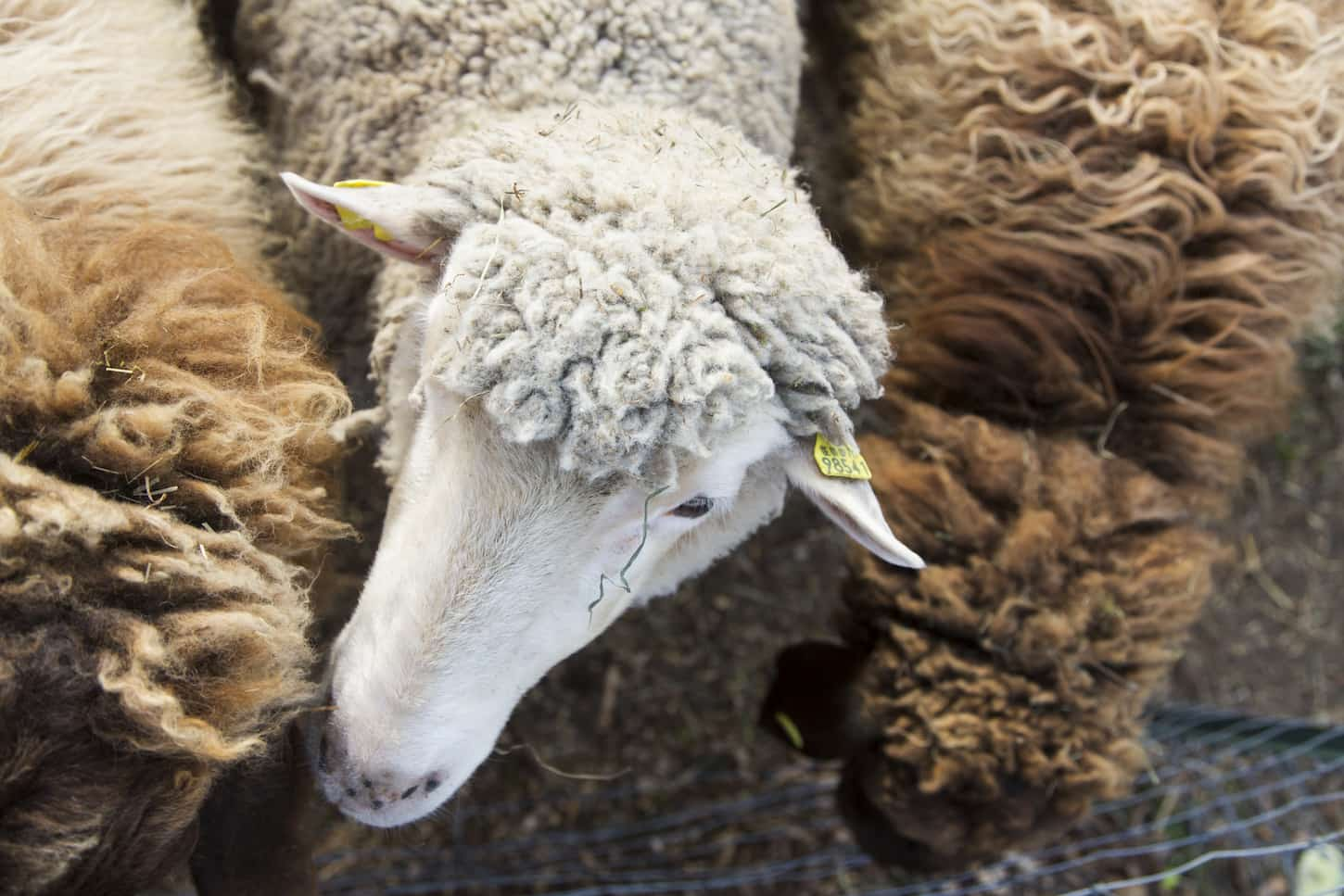
Key Takeaways and Next Steps
Through our complete guide, you are hopefully much more prepared for the adventures of raising Dorper sheep. Dorper sheep are easy to care for and require minimal land preparation. They will stay within a fenced environment and only require protection if there are active predators in the area.
Due to Dorper sheep’s great motherly instincts, we’ll be able to have a hands-off approach to lambing. The lambs quickly gain weight, making them an economical choice when raising sheep for meat.
Dorpers are very resistant to illness and parasites. Take care to protect the flock from risks, but they are a much hardier breed of sheep against illness. It’s recommended to consult with a livestock veterinarian about the risks in the local area.
Whether we’re looking to take on a Dorper as a pet or want an addition to our homestead, this breed is ideal for beginners. They are also suitable for those with sheep experience who are looking to raise meat through a low-maintenance breed.
The rise in popularity of this breed makes them easy to attain with plenty of available resources.
Hopefully, you have enjoyed this article and learned some valuable information. We have written several articles on sheep that are fun (and super informative) to read:
- Can Sheep Eat Sunflower Plants and Seeds?
- Can a Sheep Survive a Broken Leg? Tales of Three-Legged Sheep
- Do Sheep Make Good Pets?
- 8 Reasons Sheep Wander Off
- Portion Control: Do Sheep Know To Stop Eating?
Resources
Learning from your own experience is essential, but learning from others is also intelligent. These are the sources used in this article and our research to be more informed as homesteaders.
- Dorper X sheep – are they normally aggressive? (2010, November 17). Lifestyle block Discussion Forums – LSB – Lifestyle Block. Retrieved 6 September 2022, from https://www.lifestyleblock.co.nz/forum/your-place/25390-dorper-x-sheep-are-they-normally-aggressive
- Easiest Sheep Breeds To Raise. (2022, April 1). J&R Pierce Family Farm: Official Blog. Retrieved 6 September 2022, from https://www.jrpiercefamilyfarm.com/blog-1/2021/10/17/easiest-sheep-breeds-to-raise
- EVERYTHING on Dorper Sheep | The Angus of Sheep. (2020, July 31). YouTube. Retrieved 6 September 2022, from https://www.youtube.com/watch?v=D25kilMzwiM
- Garman, J. (2021, August 10). The Dorper Sheep: A Hardy Adaptable Breed. Countryside. Retrieved 6 September 2022, from https://www.iamcountryside.com/sheep/the-dorper-sheep-a-hardy-adaptable-breed/
- Just a moment. . . (n.d.). Retrieved 6 September 2022, from https://www.researchgate.net/publication/12556870_Grazing_behaviour_and_diet_selection_by_Dorper_sheep.
- Kintzel, U. (2021, June 15). Dorper Sheep: Truths and Myths. Cornell Small Farms. Retrieved 6 September 2022, from https://smallfarms.cornell.edu/2011/01/dorper-sheep-truths-and-myths/
- Sheep 101: Kinds of Sheep. (n.d.). Retrieved 6 September 2022, from http://www.sheep101.info/sheeptypes.html.
